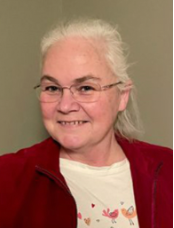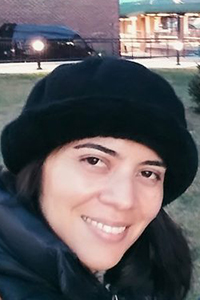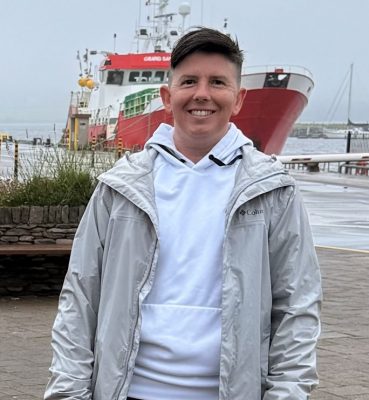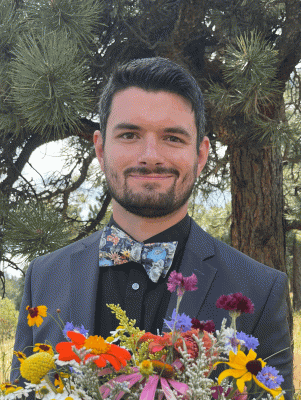Each year, the Fellows work on a year-long independent leadership project (ILP) that follows a problem of practice, leadership, or equity. These projects may track Fellows’ personal practice, schools, or district-wide initiatives. Please see the ILP titles for each year below.
If you’re interested in learning more and advancing your understanding of these innovative projects that look deeper into pedagogy and leadership, please contact the Noyce MTL Project Manager, Cleo Alberts, at cleo.alberts@uconn.edu.
AY 2024 – 2025
| Fellow Name | ILP Title |
| Kari Baransky | Improving Student Success by Creating a Positive Mathematical Identity in Families |
| Donna Busa | How Can We Diversify the CT STEM Teacher Workforce? |
| Shane Donahue | Charting Our Course – College and Career Pathways Feasibility, Articulation, and Development |
| Jennifer Downes | Equity & Rigor for Sheltered ELL Students in Math |
| Carson Dunn | Spreading Equity Through BTC Practices Across Algebra 1 Classrooms in Hartford |
| Ilisse Gomez | My Grades, My Confidence, Who Tells My Story? |
| Kate Grayeb | Bridging the Gap: Empowering Teachers of Color in Math Education |
| Kwastina Jackson | Transforming Math Educators: An Equity Journey |
| Jessica Jané | Bridging Math and Careers: Empowering Students with Relevant Career Skills |
| Leigh Lessard | Empowering Minds: Engaging Math Tasks to Promote Equity |
| Shawn McClory | Re-Designing Summative Assessments for Modern Education |
| William McKinney | Improving BOTH Equity of Access and Achievement in AP Math Classes |
| Becks Olthoff | Rewriting the Narratives of Math Education |
| Kelsey Onofrio | Supporting New-to-District Teachers (New and Veteran) |
| Jackie Rankin | A Plan for a Better Future: Developing a More Equitable Progression of Math Courses in a Local Neighborhood School |
| Maureen Ringrose | Student Achievement Through Equitable Grading Practices |
| Jennifer Roggi | Grade What You Value and Value What You Grade |
| Courtney Sobanski | Professional Development, BTC Coaching, and Peer Observation |
| Marta Soto-Johnson | Students Learn Proportionality Through Geometry |
| Natacha Vilnay | Equity in Course Offering at Cooperative Arts and Humanities High School Among Different Demographics Impact on Students and their Knowledge/Understanding of Honors, ECE versus AP |
AY 2023 – 2024
| Fellow Name | ILP Title |
| Kari Baransky | Strategic Teaching for Impactful Learning |
| Jennifer Downes | Can Consolidation Notes Improve Assessment Scores? |
| Ilisse Gomez | Building a World of Independent Thinkers |
| Kate Grayeb | Building a Districtwide Model for Supporting Building Thinking Classrooms Implementation |
| Kwastina Jackson | Double the Math, Double the Fun? |
| Jessica Jané | Cross-District Collaboration |
| Jacqui Jones | Dear Math Diary |
| Kara Jones | Giving a Little to Get a Lot |
| Shawn McClory | Making Math Relevant (For Teenagers!) |
| William McKinney | Reducing Hesitation Through Exemplars |
| Kelsey Onofrio | Effective Strategies for Cultivating a Thinking Classroom |
| Jackie Rankin | Building a Districtwide Model for Supporting Building Thinking Classrooms Implementation |
| Maureen Ringrose | Helping Students Build Math Confidence |
| Jennifer Roggi | Improving Math Identity and Agency Through Self-Reflection |
| Courtney Sobanski | Cross District Collaboration and PLC Building |
| Marta Soto-Johnson | Daily Reflection to Improve Math Understanding |
AY 2022 – 2023
| Fellow Name | ILP Title |
| Kari Baransky | Improving Mathematical Mindset |
| Jennifer Downes | Improving Communication Between ELL Students |
| Kate Grayeb | Fostering a Positive Disposition in Math Class |
| Jessica Jané | Randomized Grouping and Math Identity |
| Jacqui Jones | Closer Connections |
| Kara Jones | Increasing Engagement with IM |
| Shawn McClory | Helping Students Value Their Math Education |
| William McKinney | The Iterative Development of Consolidation |
| Kelsey Onofrio | Maximizing Student Engagement with Thin-Slicing Tasks |
| Jackie Rankin | Increasing Students’ Confidence in Math |
| Jennifer Roggi | Using Tiered Assessments to Encourage Risk-Taking |
| Courtney Sobanski | Thinking Tasks and Projects |
| Marta Soto-Johnson | Use of Manipulatives to Improve Understanding |







